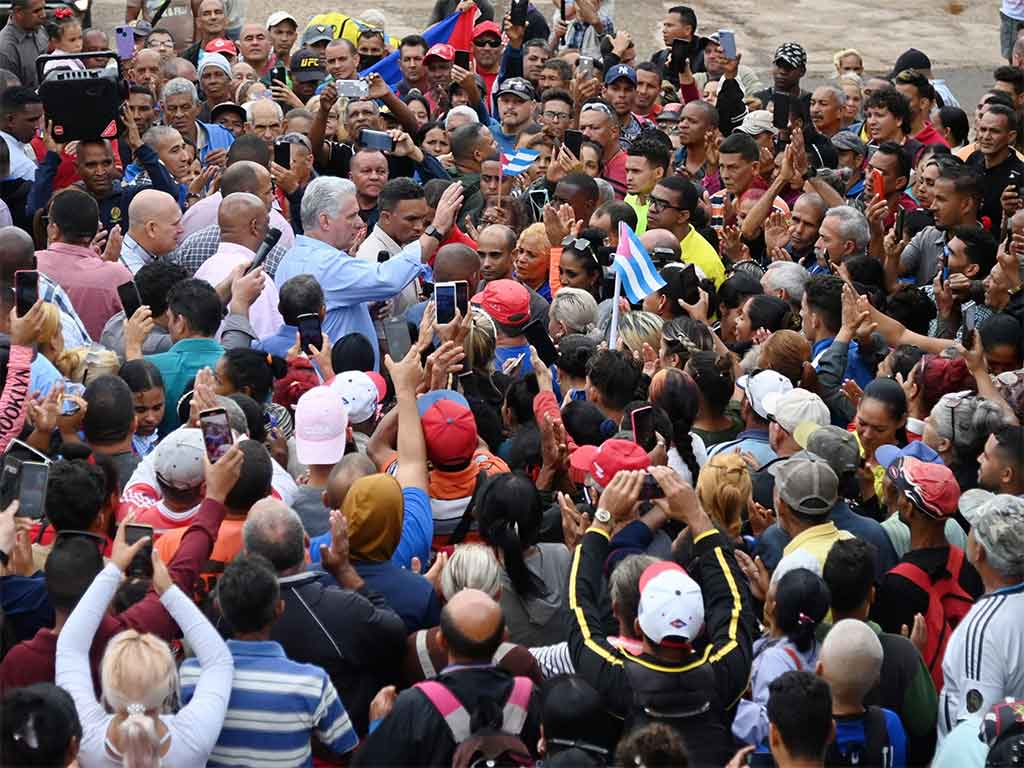President Miguel Díaz-Canel continued Thursday in Maisí, Cuba’s easternmost municipality, touring the country’s territories to check the work priorities for 2024.
In that demarcation located more than 1,000 kilometers east of Havana, the president checked the fulfillment of economic, social and political plans and programs in 2023, and the projections for this year.
Accompanied by the member of the Political Bureau and Secretary of Organization of the Central Committee of the Communist Party of Cuba (CC PCC), Roberto Morales, Díaz-Canel was in the Las Vegas community, built with houses of the petrocasas typology.
In that settlement, the President of the Republic learned that 34 other houses are being built with wood, based on a prototype used in Pinar del Río, according to the website of the Presidency of Cuba.
The experience should be extended to the rest of the province to meet the real estate needs of people affected by natural phenomena, said the publication.
The head of state also visited the Iraelda Marzo García Cooperative Basic Production Unit, mainly dedicated to coffee cultivation, and talked with representatives of that group, made up of 55 workers.
In Maisí more food has to be sown and harvested to make up for the deficit of the central allocations, limited by the effects of the U.S. blockade and the multidimensional crisis, explained the Cuban president.
The leader of the Caribbean island also visited the Conrado Benítez school, inaugurated in 1992, where children with special educational needs study, and learned about the particularities of the teaching process.In that school and in the Sol Naciente children’s house, the Cuban leader talked with students and teachers about the teaching of History, Computers and the improvement of teachers, among other topics.In the municipality of Maisí, there are more than 29 thousand people who daily face the effects of the prolonged drought, and are looking for alternatives for a stable water supply, explained local authorities.
Among the priorities of the government’s work and the influence of the Communist Party there are also the housing construction program (some 400 houses are expected to be completed by means of state subsidies and their own efforts) and food production, they told the president.In an exchange with residents of Las Máquinas, the municipal capital of Maisí, the Antillean dignitary highlighted the greatness of the Cuban Revolution that in any place, however intricate it may be, has provided schools, children’s circles and free health care centers for all.


